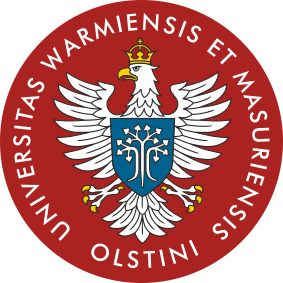Department of Land Management and Geographic Information Systems
The Department of Land Management and Geographic Information Systems
The Department of Land Management and Geographic Information Systems conducts scientific and research activities focused on two research areas:
- The analysis and development of land management systems and Land Administration,
- The assessment of spatial, demographic and socio-economic changes as well as changes in the real estate market with the use of GIS tools.
In the first research area, analyses and studies of real estate management systems and their resources as well as Land Administration in various countries are being carried out. Concepts of real estate administration systems adapted to the needs of public and private entities are being developed in an effort to improve the ability of social groups to operate and the development of areas. Tasks connected with the creation of the Integrated Information System on Real Estate and improving the Real Estate Management System are determined. Particular research emphasis is given to improving the principles of managing real estate resources of the National Treasury. In this discipline of science, the particular research tasks include:
- Informative support of managing agricultural real estate of the National Treasury,
- Preparing the rules of creating resource management plans,
- Optimizing decision-making processes as well as detailed management procedures.
Research in the second area pertains to both urban centers, intermediate areas and those subject to increased urbanization processes as well as non-urbanized areas. Among the most important motives of this task are the analyses of economic, social and environmental determinants of local and regional development. Aspects connected with the attractiveness of areas, the dynamics of the level of socio-economic development and relations between environmental and investment attractiveness are investigated. The research is carried out mainly for areas of Warmińsko-Mazurskie Voivodeship and the region of Northern Poland.
The results of research works of the department are published in scientific journals which are national and international in their scope and possess an impact factor (IF). The workers also coordinate the Acta Scientiarum Polonorum Administratio Locorum journal, issued by the publishing House of the University of Warmia and Masuria. This is a quarterly journal with an international scope, indexed in the important Scopus and Erich+ bases.
Employees of the department actively participate in conferences in: Austria, Australia, Belgium, Croatia, Lithuania, Spain, the Netherlands, Portugal and Vietnam, as well as travelling under the Socrates Erasmus program to various universities throughout Europe. They collaborate with many economic entities and public organizations, including the World Bank, International Federation of Surveyors, the National Centre for Agricultural as well as many other public administration bodies and also commercial enterprises. In addition to this, they perform expert opinions commissioned by various Ministries, The Surveyor General of Poland, Administrative Courts, etc.
Department workers hold classes for full-time and part-time studies.
1st cycle and 2nd cycle degree programmes in four academic directions: geodesy and cartography, information engineering, spatial development and in post-graduate studies. The subjects taught can be classified into a few main topical groups: spatial analyses and econometric modelling of areas, real estate administration and management, legal conditions of spatial development and environmental protection, legal-technical and organizational issues related to geodesy and cartography, property right and sources of information on real estate, revitalization of urbanized and decapitalized areas.
The academic scope falls into the research works carried out by the Department workers, which influences an increase in their level and the attractiveness of content relayed to the students. The scientific research and classes form a coherent whole.



